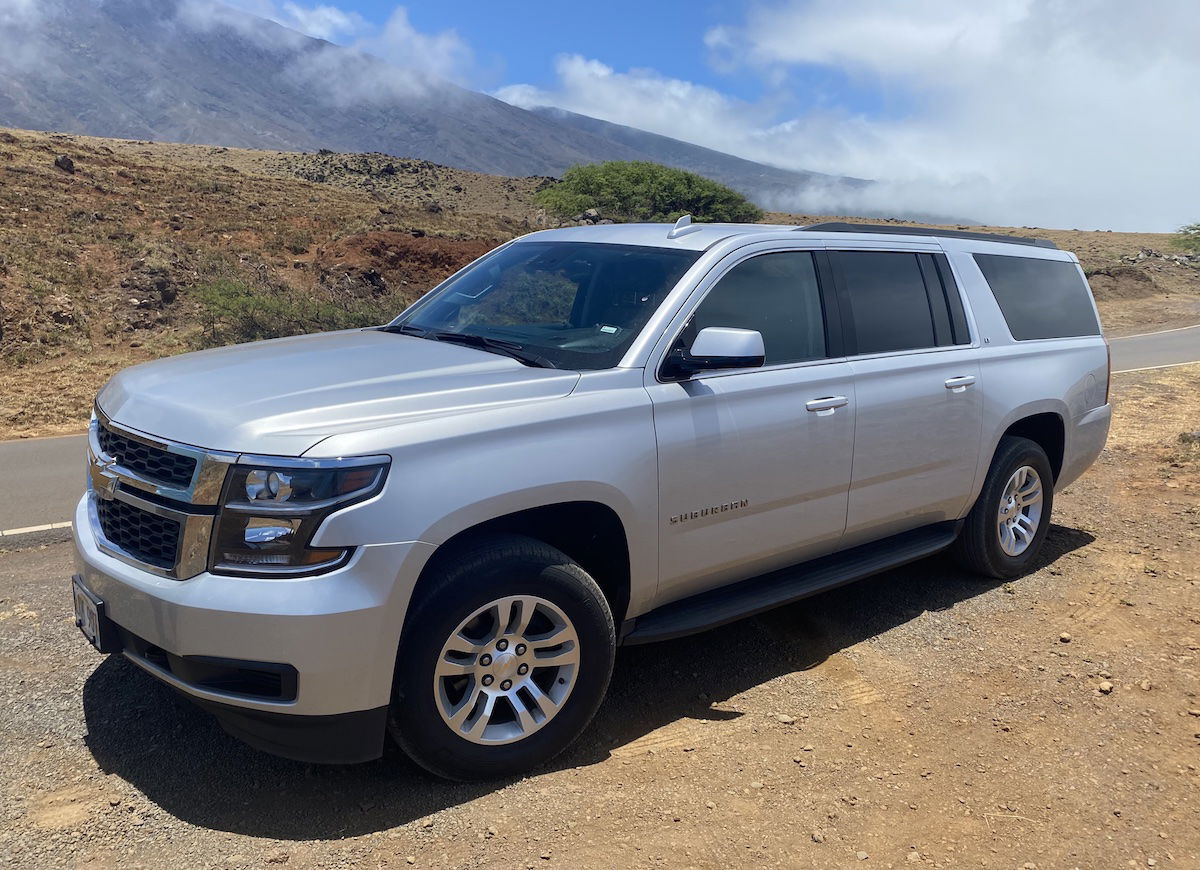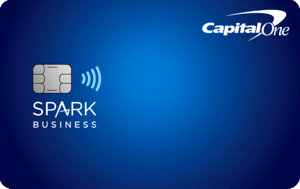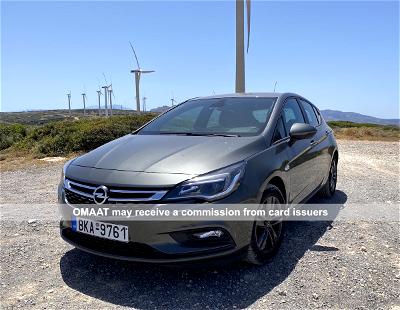Link: Apply now for the Capital One Spark Miles for Business Card (Rates & Fees)
There’s a lot of value to be had in getting the right business credit cards, as these cards can offer perks and rewards that you can leverage to get huge value, especially for travel. In many cases, the perks will more than justify the annual fee.
In this post I wanted to take a close look at what I consider to be one of the most well-rounded business credit cards out there. This is an especially good complement to the Capital One Venture X Rewards Credit Card (review) (Rates & Fees), which I know is getting many people into the Capital One mileage ecosystem.
In this post:
Capital One Spark Miles Business Card Basics For April 2024
The Capital One Spark Miles for Business is one of my favorite business credit cards, and it’s a card I personally have. It offers flexible travel rewards that can either be redeemed as cash toward the cost of a travel purchase, or can be transferred to an airline or hotel partner.
Not only does the card offer flexible rewards, but it offers them at a good rate, as you’re looking at earning two cents toward travel per dollar spent, or up to two airline miles or hotel points. Let’s go over some of the key details of this card.

Welcome Bonus Of 50K Spark Miles
The Spark Miles Business Card currently offers a welcome bonus of 50,000 Spark miles after spending $4,500 on purchases within the first three months. Personally I value Capital One miles at 1.7 cents each, so to me this bonus is worth $850. This is a solid bonus for a card with a reasonable spending requirement.
Application Restrictions
The welcome bonus on the Spark Miles Business Card isn’t available to those who have the card, or those who have received a bonus on the card in the past. However, you are eligible for the card if you have or have had another Capital One credit card, including another business card.
Beyond that, Capital One doesn’t have many consistent application rules. The only other major thing worth noting is that Capital One may pull from all three credit bureaus. Personally I don’t find that to be a big deal one way or another, though it is something that’s at least worth being aware of.
$95 Annual Fee, Waived First Year
The Spark Miles Business Card has a $95 annual fee, though it’s waived for the first year (Rates & Fees). This is a great way to try the card before you have to “buy it,” so to speak, since you can take advantage of all the perks for 12 months before having to pay your first annual fee. There is no cost to add additional users to the card.
Spark Miles Business Card 2x Miles
The Capital One Spark Miles for Business offers unlimited 2x Spark miles per dollar spent, which I consider to be among the best returns on everyday spending. One other cool thing is that the miles post almost immediately when your purchase hits the statement, rather than after the statement closes (or even the statement after that). Talk about instant gratification!
In general, you have two major options for redeeming your Spark miles, which means that the card offers the equivalent of a return of two cents on the dollar toward travel, or up to two airline miles or hotel points per dollar spent.
Redeeming Spark Miles Toward Travel Costs
One way to redeem Spark miles is at the rate of one cent per mile toward the cost of a travel purchase. This means you’re earning two cents per dollar spent toward travel, since the card offers unlimited 2x Spark miles.
If you want to redeem your Spark miles toward the cost of a travel purchase, there are two primary ways you can do so:
- You can redeem them for past travel purchases cashing in miles for statement credits, where you can simply make an eligible travel booking using your card, and then you can go online after the fact and use your miles to pay for it within 90 days of the date of purchase; your credit will be applied to your account within two to three days
- You can book a travel reservation through Capital One Travel, and each mile can be redeemed for one cent toward the cost of a travel purchase
Eligible travel purchases include those made from airlines, hotels, rail lines, rental car agencies, limousine services, bus lines, cruise lines, taxi cabs, travel agents, and timeshares.

Transfer Spark Miles To Loyalty Partners
As far as I’m concerned, this is the best way to redeem your Spark miles. It’s possible to convert Spark miles into airline miles in a variety of programs A vast majority of transfers are at a 1:1 ratio, giving you incredible flexibility. Here are the Capital One transfer partners:
Airline Partners | Hotel Partners |
|---|---|
Aeromexico Club Premier | |
It’s worth noting that Capital One also sometimes offers further transfer bonuses, so that you can get an even better transfer ratio.

How Should You Redeem Spark Miles?
Every dollar spent on the Spark Business Card earns you two miles, and those two miles get you either two cents worth of travel, or up to two airline or hotel points. Which redemption option makes more sense depends on your redemption patterns.
In general I’d say that:
- If you want to redeem your Spark miles for anything other than flights, your best option is redeeming them at one cent each toward a travel purchase
- If you want to redeem your Spark miles toward airfare, you’ll get more value for international first and business class tickets when transferring miles to an airline partner
- If you want to redeem your Spark miles toward economy airfare (especially if it’s reasonably priced), your best option is redeeming them at one cent each to wipe out the cost of that purchase
Those are very general guidelines, and the best solution very much depends on the specific circumstances. If you are going to go the route of transferring miles to partners, see my top 10 tips for redeeming miles.

Combining Capital One Miles
Both the Capital One Spark Miles and Capital One Venture Rewards Credit Card (review) (Rates & Fees) earn miles that can be redeemed for one cent each toward a travel purchase, or can be transferred to an airline or hotel partner.
While these cards are marketed differently — “Venture” miles and “Spark” miles — they’re more or less the same for all practical purposes.
What’s cool is that you can combine the miles on both cards, so you can rack up a lot of miles this way between your personal and business spending. You can even share your miles with others, making these points really flexible.
Spark Miles Business Card Perks
The Capital One Spark Miles for Business offers a variety of valuable perks that can help to offset the annual fee, ranging from no foreign transaction fees (Rates & Fees), to a Global Entry or TSA PreCheck credit, to rental car coverage.
Global Entry/TSA PreCheck Credit
The Spark Miles Business Card offers a Global Entry or TSA PreCheck credit once every four years. Just charge the membership fee to your Capital One Spark Miles Card, and it will automatically be reimbursed. It doesn’t matter who the fee is being paid for, as long as you charge it to your eligible card.
No Foreign Transaction Fees
The Spark Miles has no foreign transaction fees (Rates & Fees), so it’s a great card to use for purchases abroad, as you can earn rewards all while not paying additional fees. This is a common benefit nowadays across many cards, but it’s still very valuable.
Rental Car Coverage
The Spark Miles offers car rental coverage, assuming you’re renting for business reasons. Just charge the entire rental to your card and decline the rental company’s collision damage waiver coverage, and you’ll be covered for damage due to collision or theft. Review the benefits guide for full details.
Make sure you check out your cardmember agreement for full details, because there are some exclusions.

Other Purchase & Travel Protection
The Spark Miles offers all kinds of other protection, including purchase security and extended protection (coverage on items lost or stolen within 90 days), travel and emergency assistance services, and more. The full details of this can be found in the cardmember agreement.
Lounge Access Twice Annually
Having the Capital One Spark Miles for Business gets you lounge access twice annually:
- You can access Capital One Lounges; so far the Capital One Lounge DFW is open, and it’s amazing
- You can access 100+ Plaza Premium Lounges, including Virgin Atlantic Clubhouses in the United States
In each case you’ll just want to present your card, and it will be swiped. You can use your two annual passes either for two separate visits just for you, or you can use them for a single visit with a guest. You can also access lounges beyond those two visits, but you’ll be charged.
While this isn’t to the level of lounge access perks you’ll find with some premium credit cards, it’s pretty awesome for a business card that even has the annual fee waived the first year (Rates & Fees).

Is The Spark Miles Business Card Right For You?
There are lots of great business credit cards out there, so is the Capital One Spark Miles for Business right for you? Let’s look at a few other options out there, including the Spark Cash Plus, which is a similar card that could be worth considering as well.
Quick Comparison: Spark Miles Vs. Spark Cash Plus
In addition to the Capital One Spark Miles, there’s also the Capital One Spark Cash Plus (review) (Rates & Fees). Despite the similar names, there are some key differences between the cards:
- The Spark Miles has a $0 intro for first year; $95 after that annual fee (waived the first year) (Rates & Fees), whereas the Spark Cash Plus has a $150 annual fee (not waived the first year)
- The Spark Miles is a credit card (meaning you can finance charges and have a credit limit), while the Spark Cash Plus is a charge card (meaning you can’t finance charges and there’s no pre-set spending limit)
- The Spark Cash Plus offers 2% cash back, which you can spend toward anything; in conjunction with the Spark Miles or Venture Card, those rewards can also be converted into miles at a rate of one cent per Spark mile or Venture mile
- The Spark Miles offers the equivalent of 2% back toward travel, or up to two airline miles or hotel points per dollar spent
- The Spark Miles offers a Global Entry or TSA PreCheck credit and lounge access twice annually, which the Spark Cash Plus doesn’t (that’s because the Spark Miles is intended to be more of a travel rewards card)
- The Spark Cash Plus offers a $150 annual statement credit if you spend $150,000 or more on the card in an anniversary year; this essentially wipes out the annual fee
- The Spark Cash Plus is offering a significantly bigger welcome bonus for big spenders
There are pros and cons to each card. If you want to earn travel rewards and want the lowest annual fee possible, the Spark Miles is the way to go. Meanwhile if you want the flexibility to earn cash back that you can use toward anything, if you value the lack of a pre-set spending limit, and if you spend $150,000 or more on a card per anniversary year, the Spark Cash Plus is the way to go.

Similar Alternatives To The Spark Miles Business Card
If you’re looking for a lucrative business card, there are a few other options that are worth considering:
- The Blue Business® Plus Credit Card from American Express (review) has no annual fee (Rates & Fees), and offers 2x Membership Rewards points on the first $50,000 spent per calendar year (1x after that)
- The American Express® Business Gold Card (review) has a $375 annual fee (Rates & Fees) and earns 4X Membership Rewards® points on the 2 categories where your business spends the most each billing cycle from 6 eligible categories. You will earn 4X points on the first $150,000 in combined purchases from these categories each calendar year (then 1X thereafter).
- The Ink Business Preferred® Credit Card (review) has a $95 annual fee, has an amazing cell phone protection plan, and offers 3x Ultimate Rewards points on the first $150,000 in combined purchases per anniversary year on travel, shipping purchases, internet, cable, phone services, and advertising purchases made with social media sites and search engines
- If you’re willing to get more than one card, there’s huge value in pairing the Ink Preferred with the Ink Business Cash® Credit Card (review) and/or Ink Business Unlimited® Credit Card (review), as the cards offer 1.5-5x points per dollar spent
Bottom Line
The Capital One Spark Miles is a solid business credit card if you’re looking to earn travel rewards. The card offers unlimited 2x Spark miles, and those miles can be redeemed for one cent each toward a travel purchase, or can be transferred to an airline or hotel partner, typically at a ratio of 1:1.
If you have a business where you spend a lot in categories that otherwise don’t quality for bonus points on other cards, I’d say this is an excellent option, as it’s extremely well-rounded.
If you want to learn more about the Spark Miles Business Card or want to apply, follow this link.
The following links will direct you to the rates and fees for mentioned American Express Cards. These include: American Express® Business Gold Card (Rates & Fees), and The Blue Business® Plus Credit Card from American Express (Rates & Fees).
For Capital One products listed on this page, some of the above benefits are provided by Visa® or Mastercard® and may vary by product. See the respective Guide to Benefits for details, as terms and exclusions apply.






It would be good if such articles clarified if the card is a Visa card or a Mastercard. It is weird that I was unable to find this information even on the capital one site. Such information can be the "value add" provided by a good blogger site
This card counts towards chase’s 5/24. Right?